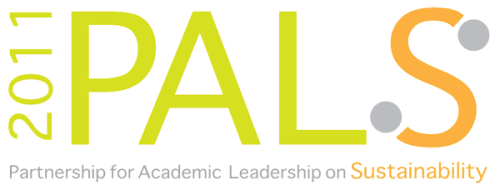by Van Du, Intern - Advancing Green Building Initiative
(This post is part of a weekly series by the Second Nature team about why we do what we do.)
 Three years ago, on the bus ride to Maine, after picking my mother up from Boston Logan Airport as she had come to attend my graduation at Bowdoin College, we started having the usual parent-child conversation of what I was going to do with my life after school. Past conversations about school revolved around what classes I was taking and whether or not I was doing well, but it was never specifically about how my college education would prepare me for my future. During our conversation, I realized I was struggling to explain to her the meaning of the word “sustainability” and how I wanted to have a career in sustainability-related work.
Three years ago, on the bus ride to Maine, after picking my mother up from Boston Logan Airport as she had come to attend my graduation at Bowdoin College, we started having the usual parent-child conversation of what I was going to do with my life after school. Past conversations about school revolved around what classes I was taking and whether or not I was doing well, but it was never specifically about how my college education would prepare me for my future. During our conversation, I realized I was struggling to explain to her the meaning of the word “sustainability” and how I wanted to have a career in sustainability-related work.
There is no translation for “sustainability” in Vietnamese. But certainly, my mother understands the importance of ideas such as preserving diversity, protecting the environment, being a part of a community, caring and sharing, and of course, world peace. My mother also believes that if one considers herself a member of society, it is her responsibility to ensure that the future generations deserve a piece of all the wonderful things we have enjoyed in the past and present. However, for her, recognizing and carrying out these ideas is simply common sense. And there it was, my first revelation in life: Did I just go to college to learn about what should have been common sense?
So while I tried to explain to my mother about my dream career, she reminded me of the Vietnamese cultural values and traditions I was raised on. It was for me another great lesson of my roots, as well as a reinstatement of my passion to live and work for the concepts of sustainability.
Read more  Colgate University receives Second Nature’s 2nd Annual Climate Leadership Award. Award recipients were recognized at the 5th Annual American College & University Presidents’ Climate Commitment (ACUPCC) Summit in Washington, DC on June 23rd, hosted by George Washington University.
Colgate University receives Second Nature’s 2nd Annual Climate Leadership Award. Award recipients were recognized at the 5th Annual American College & University Presidents’ Climate Commitment (ACUPCC) Summit in Washington, DC on June 23rd, hosted by George Washington University.



 Three years ago, on the bus ride to Maine, after picking my mother up from Boston Logan Airport as she had come to attend my graduation at Bowdoin College, we started having the usual parent-child conversation of what I was going to do with my life after school. Past conversations about school revolved around what classes I was taking and whether or not I was doing well, but it was never specifically about how my college education would prepare me for my future. During our conversation, I realized I was struggling to explain to her the meaning of the word “sustainability” and how I wanted to have a career in sustainability-related work.
Three years ago, on the bus ride to Maine, after picking my mother up from Boston Logan Airport as she had come to attend my graduation at Bowdoin College, we started having the usual parent-child conversation of what I was going to do with my life after school. Past conversations about school revolved around what classes I was taking and whether or not I was doing well, but it was never specifically about how my college education would prepare me for my future. During our conversation, I realized I was struggling to explain to her the meaning of the word “sustainability” and how I wanted to have a career in sustainability-related work.

